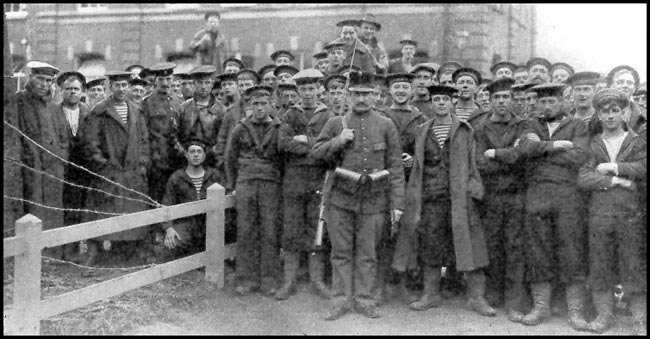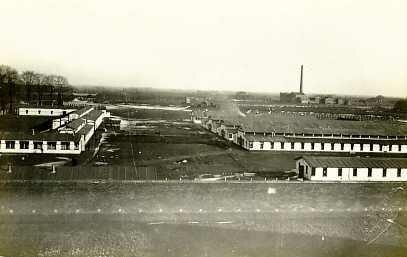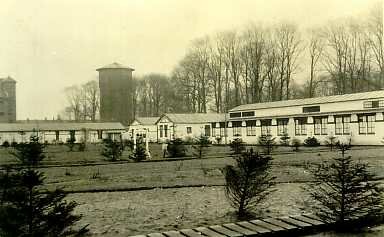
During the Great War the Netherlands, as one of the few remaining neutral states, interned all soldiers from both sides who happened to cross the border. There were several internment camps spreaded all over the country. Of course many of these soldiers tried to get away, to join their forces, or just to go home.
After the war British Able Seaman Jeremey Benthem told how he and his friend Bob Southin managed to escape from the Groningen camp and how they finally arrived in England. A thrilling story.
JEREMY BENTHEM: "At the camp the Dutch officials opened and inspected all our large parcels but they didn't bother about small ones, so I wrote to a friend of mine to send out a couple of suits folded up small, a bit at a time. I think his sister cut out the pieces and he send them one at a time, a sleeve, a trouser leg or the front of a jacket, and thread and some buttons. It took us some months to collect all the pieces and then we had to sew them together, not very expertly.
 Groningen (both pictures on the right) wasn't like being in a prisoner of war camp in Germany. We weren't short of food, though the diet was pretty dull, but tradesmen came to the camp with barrows selling cake and fruit and chocolate and cigarettes and we had plenty of money to buy things, because we were paid a certain amount by the Dutch authorities. I also got a monthly pay-cheque from the Dutch agents of Cocks-Biddulph, the bank I'd worked for in London.
Groningen (both pictures on the right) wasn't like being in a prisoner of war camp in Germany. We weren't short of food, though the diet was pretty dull, but tradesmen came to the camp with barrows selling cake and fruit and chocolate and cigarettes and we had plenty of money to buy things, because we were paid a certain amount by the Dutch authorities. I also got a monthly pay-cheque from the Dutch agents of Cocks-Biddulph, the bank I'd worked for in London.
We also used to make photograph frames out of Dutch cigar boxes which we sent to Selfridges in London and in return they sent us out cigarettes and anything we needed, so we were quite well off, and the local people were very good to us. In fact the camp was open to civilian visitors every Sunday, and whole crowds of them used to come to see us just as though they were visiting the zoo and we really felt like caged animals.
But I got quite attached to a Dutch girl who used to come and talk to me through the barbed wire and we got so friendly that she persuaded her father to write to the Commandant to ask if I could visit their house for a meal now and then. We got so friendly that one evening, just before I was due back to the camp, her elder brother asked me when I was going to give his sister a ring ! Well, that really scared me and it certainly speeded up our plans to get away.
Change of religion
 Of course, we'd been planning it for months, and the first thing we did was to change our religion. That meant that instead of attending church parade in the camp we were marched down every Sunday to the Waalsche Kerk in the town, accompanied by a guard who waited outside during the service. There were about ten of us in the party and either the others had the same idea of getting away or perhaps they just wanted a change of scene and a breath of air. I'd also done my best to learn a bit of Dutch but there were a lot of words I didn't know.
Of course, we'd been planning it for months, and the first thing we did was to change our religion. That meant that instead of attending church parade in the camp we were marched down every Sunday to the Waalsche Kerk in the town, accompanied by a guard who waited outside during the service. There were about ten of us in the party and either the others had the same idea of getting away or perhaps they just wanted a change of scene and a breath of air. I'd also done my best to learn a bit of Dutch but there were a lot of words I didn't know.
However, the following Sunday we put on our civilian suits under our naval uniforms, and we wee jolly glad of the baggy trousers for we could stuff our caps into our socks. Half-
Click here for the rest of the story
Or
Click here to return to The Heritage of the Great War